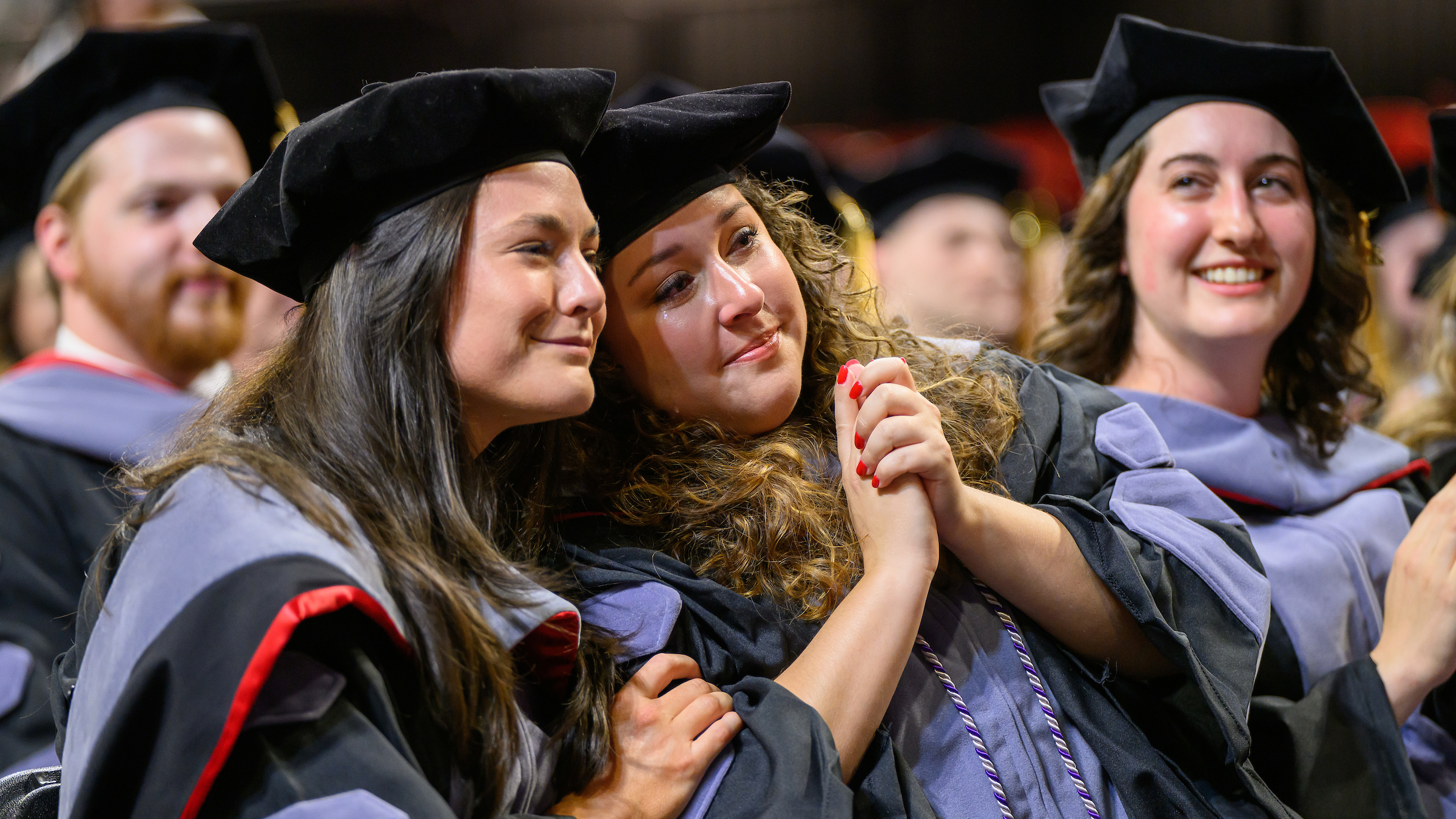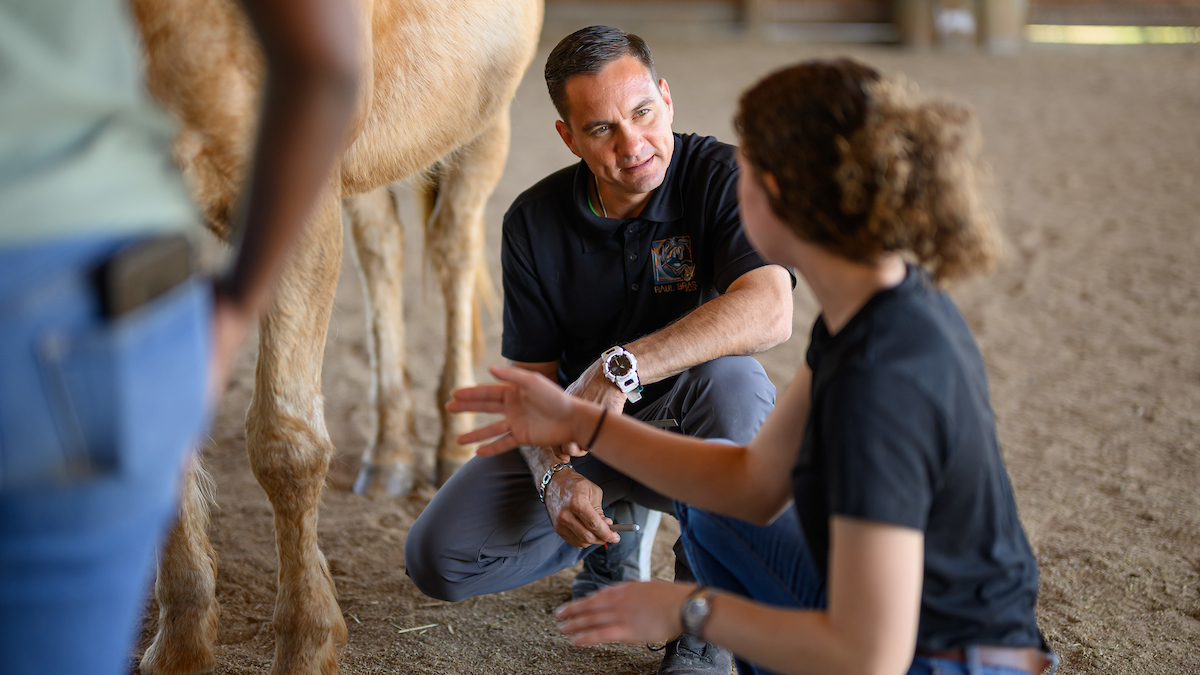Dr. Adler’s BioMarck Team Making Progress on Possible Medical Breakthrough
Dr. Kenneth Adler, a professor of cell biology in the College of Veterinary Medicine’s Department of Molecular Biomedical Sciences, is one of the world’s foremost researchers in the field of airway disease. In the following release, the North Carolina Biotechnology Center provides an update on Dr. Adler’s promising research into diseases of the upper respiratory airways and the problem of excess mucus production.
RESEARCH TRIANGLE PARK, N.C. June 22, 2011– He’s a basic academic scientist. So Kenneth Adler, Ph.D., didn’t expect to be one of the lucky few who get to see their work turn into a potentially lifesaving medical breakthrough.
But he says a 2003 Collaborative Funding Grant (CFG) from the North Carolina Biotechnology Center and the Kenan Institute for Engineering, Technology & Science played a role in doing just that.
A professor of cell biology with the North Carolina State University College of Veterinary Medicine since 1987, Adler has dedicated a career to understanding a single molecule.
In the 1980s Adler discovered a way to take cells from mammals’ lungs and keep them “alive” in the lab, for closer observation. Using this cell-culture technique, by the mid-1990s he had focused his work on a protein called MARCKS (an acronym for Myristoylated Alanine-Rich C Kinase Substrate).
Good call. MARCKS turns out to be a major player in mucus build-up and inflammation in diseased lung and airway tissue. So inhibiting it could be a therapeutic breakthrough.
Current Remedies Treat the Symptoms, Not the Cause
“There are no drugs available now that directly affect production or build-up of mucus in the lungs,” says Adler. “There’s a whole class of patients with chronic bronchitis being treated with corticosteroids and asthma drugs. They may experience a small increase in lung function when they take these drugs, but they don’t directly affect the excess mucus and inflammation that characterize chronic obstructive pulmonary disease (COPD). COPD affects up to 30 million people in the United States, and is the third-leading cause of death.
In 2002, with the help of a Biotechnology Center start-up loan, Adler and some partners formed a company to exploit the business potential of Adler’s MARCKS findings. They called it, appropriately enough, BioMarck Pharmaceuticals.
And Adler says the $60,000 CFG he got the following year was an important bridge that allowed his lab to move beyond federally funded basic research into the world of commercial medicine.
It wasn’t just the money. Adler is a researcher of international renown who has collected millions of dollars in grants to propel his work. In 2004, for example, he won a coveted Merit Award from the National Institutes of Health, worth $400,000 a year for 10 years.
CFG Funding Pays for Commercialization Studies
What Adler finds so valuable about the CFG was that he was allowed to use that grant to commercialize his lab work. It allowed him to hire a post-doctoral researcher to expand the commercial and therapeutic potential of Adler’s work.
“That’s where NIH and North Carolina Biotechnology Center funding diverged,” he says. “My NIH grants are for looking at the basic cellular mechanisms of how the MARCKS protein works. Those kinds of grants don’t support development and commercialization of a drug by a startup biotech company that could, say, block the function of this protein in people with a disease.”
Adler says he believes now that BioMarck will be able to develop drugs that not only prevent excess mucus production, but also ward off inflammation of lung tissue that can cause serious problems in humans and animals.
Grant Enables $17M in Follow-On Funding
Like many of the 540 life-science companies across North Carolina, the BioMarck team has been hard at work assembling partnerships to develop the university spin-out technology.
BioMarck has just finished Phase IIa clinical trials in patients at 18 sites around the United States, and the results look “very encouraging,” says Allen “Fred” Gant, BioMarck co-founder, chairman and CEO.
Gant says BioMarck’s credibility with the Biotech Center has enabled about $17 million in follow-on funding. Meanwhile, Adler is still on the MARCKS.
“At this point I’m trying to find out as much as possible about how MARCKS works,” he says. “It’s such a fascinating area of research to me. I could spend another 50 years looking at this molecule.”
The Biotechnology Center is a private, non-profit corporation supported by the N.C. General Assembly. Its mission is to provide long-term economic and societal benefits to North Carolina by supporting biotechnology research, business, education and strategic policy statewide.


